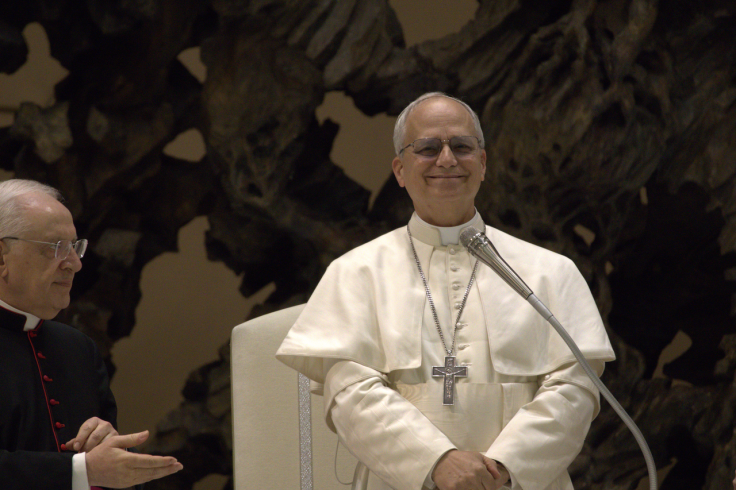Pope Leo XIV Urges Youth to Stop Letting AI 'Do Your Homework', Saying It 'Can't Replace Human Intelligence'
The pontiff tells youth to let technology serve their growth, not replace human intelligence or moral responsibility

On Friday, 21 November, Pope Leo XIV addressed around 15,000 Catholic teenagers in Indianapolis urging them not to let artificial intelligence replace their personal learning and development.
Speaking via livestream from the Vatican, the US-born pontiff described AI as 'one of the defining features of our time', while stressing that true growth comes from personal effort. He urged the youth not to rely on AI to complete tasks for them. Instead, he called to let the technology serve them and be responsible and intentional in using digital tools for the better.
A Pope's First Digital Conference: Discussing AI and Technology
Attending the National Catholic Youth Conference through a digital link is the first time a pope has participated in this manner. With 16,000 participants filling Lucas Oil Stadium to watch, the Pope's presence on giant screens drew visible excitement.
Elise Wing, a teen selected to interact with the pontiff, said walking onto the stage 'felt like history'. Pope Leo XIV waved to the crowd before engaging in a 40-minute exchange with students, with guidance on technology and reflections on personal conscience and faith.
Throughout the event, the Pope acknowledged AI's usefulness, noting it 'can process information quickly, but it cannot replace human intelligence'. He urged the teenagers to learn from the example of St Carlo Acutis, a modern Catholic known for using technology intentionally, and to ensure that their screen time serves their personal development.
He emphasised that only individuals themselves, not algorithms or filters, can make the decisions that foster maturity and responsibility.
The Pope's Insights into US Politics and His Daily Life
The Pope also addressed political tensions in the United States, cautioning the youth against using partisan categories to frame their understanding of faith.
'The Church doesn't belong to any political party... she helps form your conscience so you can think and act with wisdom and love', he said.
By reminding teenagers of the Church's nonpartisan guidance, the new Pope stated the importance of independent thinking in both education and moral decision-making.
Amid the serious messages, Pope Leo added lighter details about his daily life, joking that he plays the word game Wordle and chooses 'a different word every day'
A Milestone for US Catholic Youth
For local Catholic leaders, the livestream is a landmark moment.
Archbishop Charles Thompson described the event as a national focal point for youth engagement, noting that most participants could reach Indianapolis within a day's travel. The digital presence continues a trend of remote papal engagement that began with St John Paul II in 1985, when TV audiences were included in the Urbi et Orbi blessing.
Today, Pope Leo's address reflects the Vatican's adaptation to a fully digital era, per Vatican News. He encouraged teenagers to use digital tools for prayer, Bible study, and learning about their beliefs, but emphasised that in-person participation in the Sacraments remains irreplaceable.
Ultimately, Pope Leo reminded youth that they are both the present and future of the Church, encouraging participation in Sunday Mass, youth activities, and discernment of vocations (priesthood, marriage, religious life).
He invited young people to serve generously, build unity, and act as peacemakers, 'Be friends of Christ... who build bridges instead of walls'.
© Copyright IBTimes 2025. All rights reserved.





















